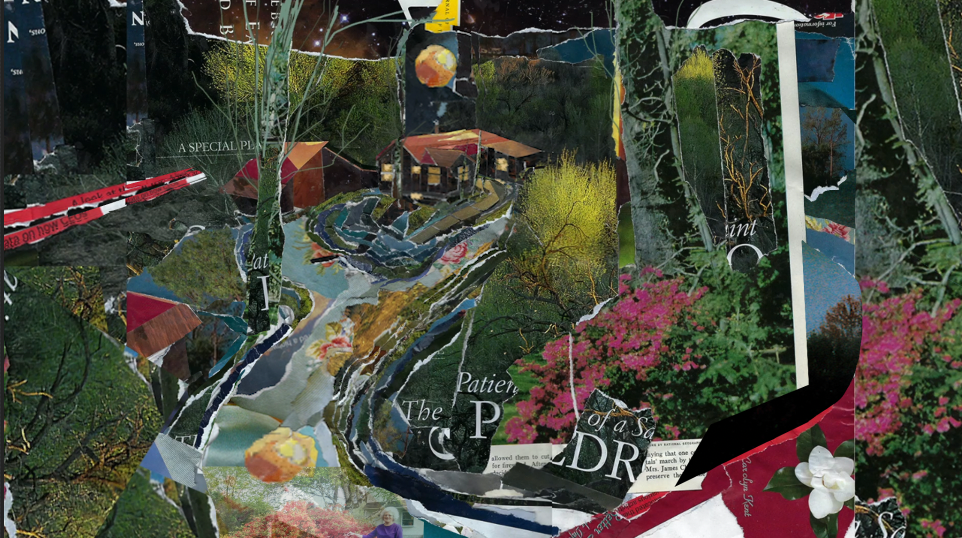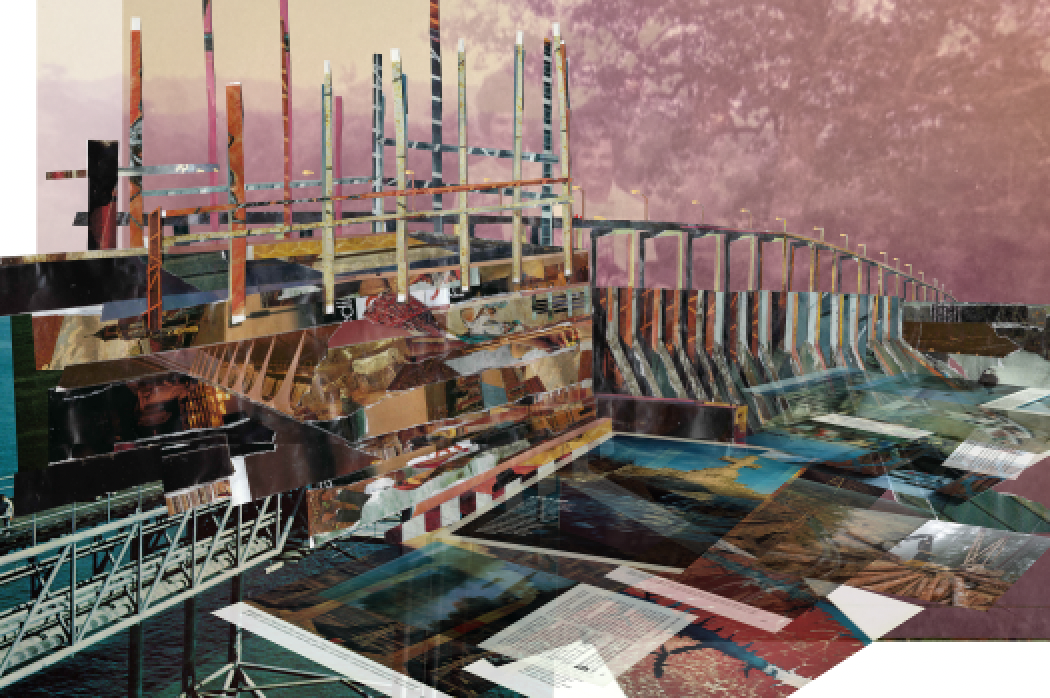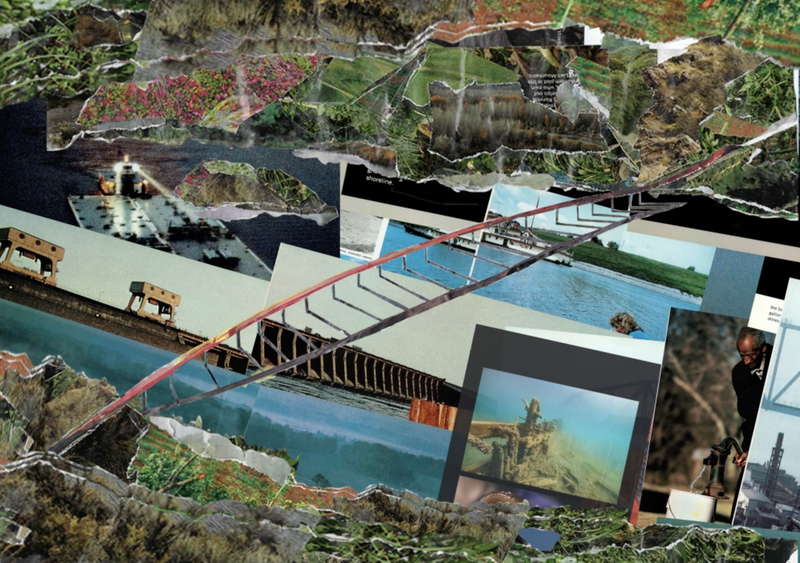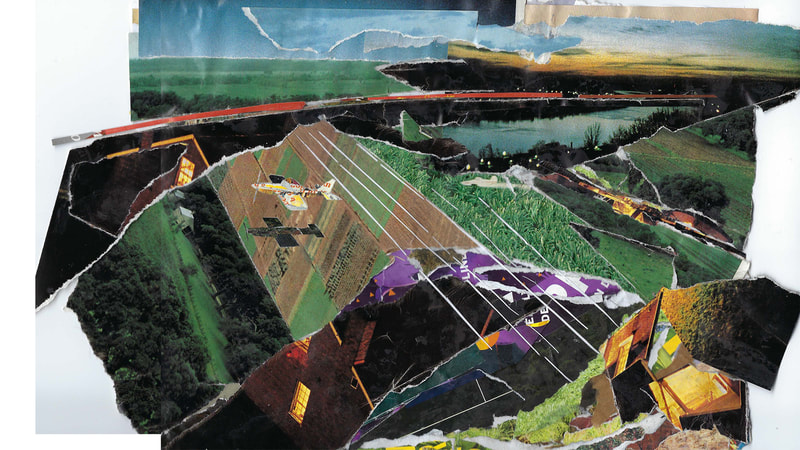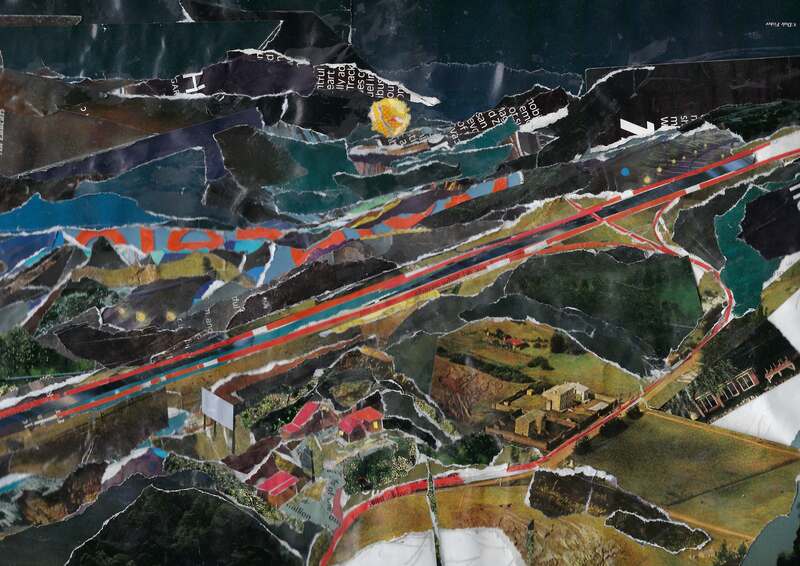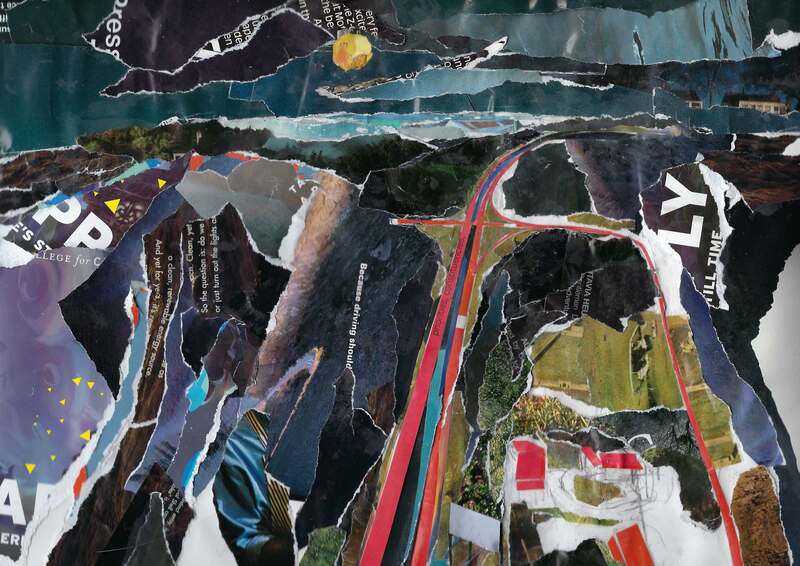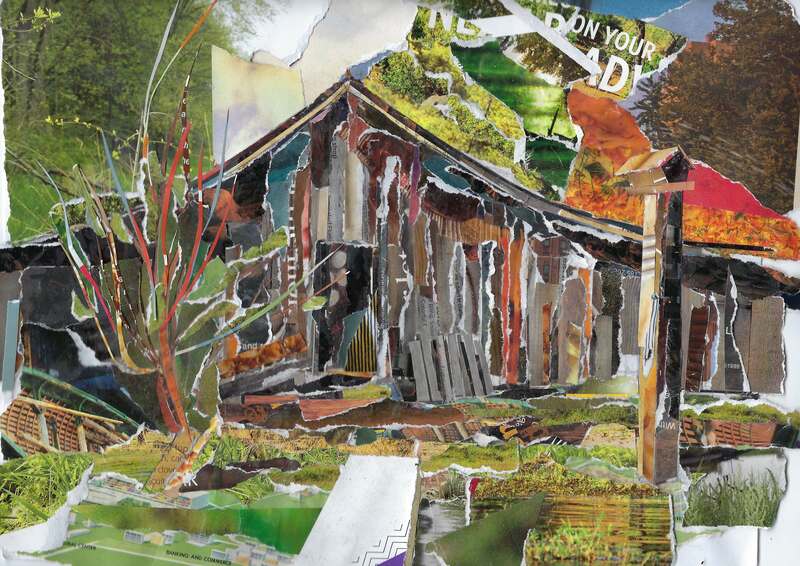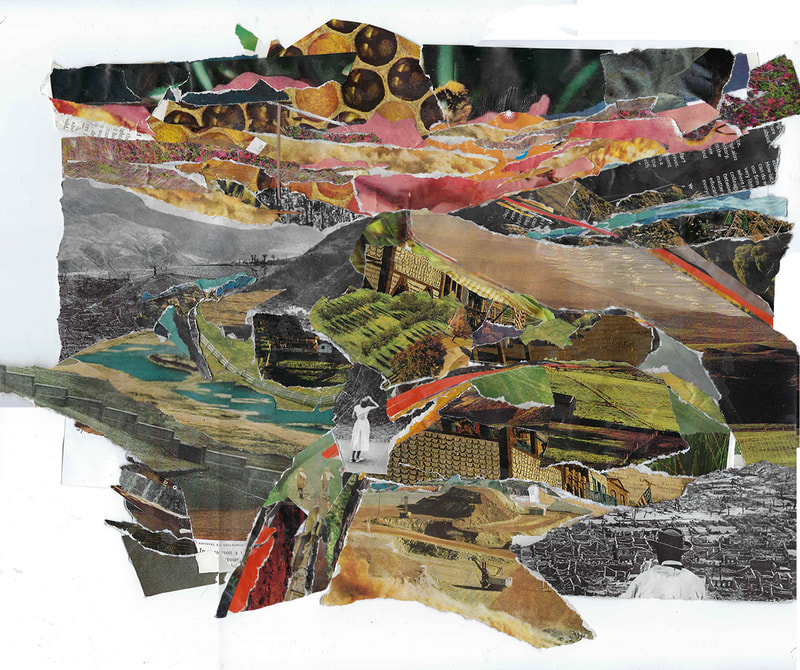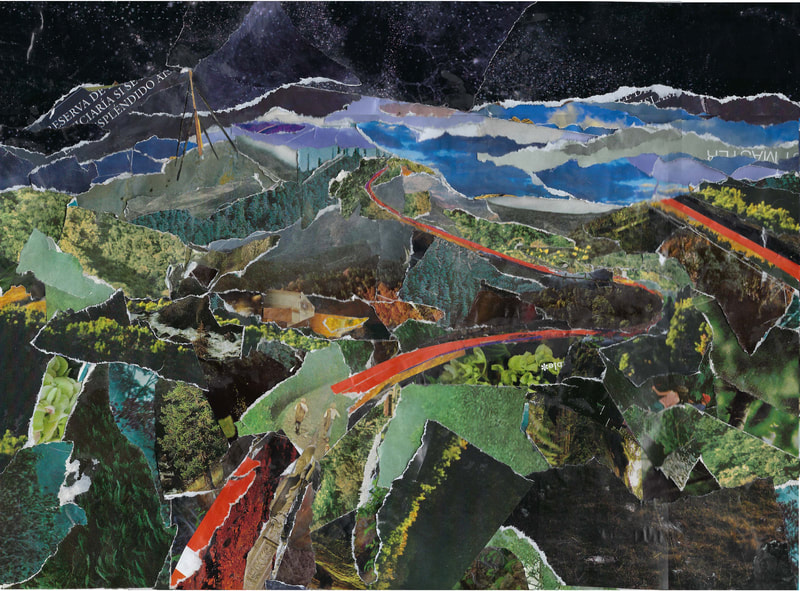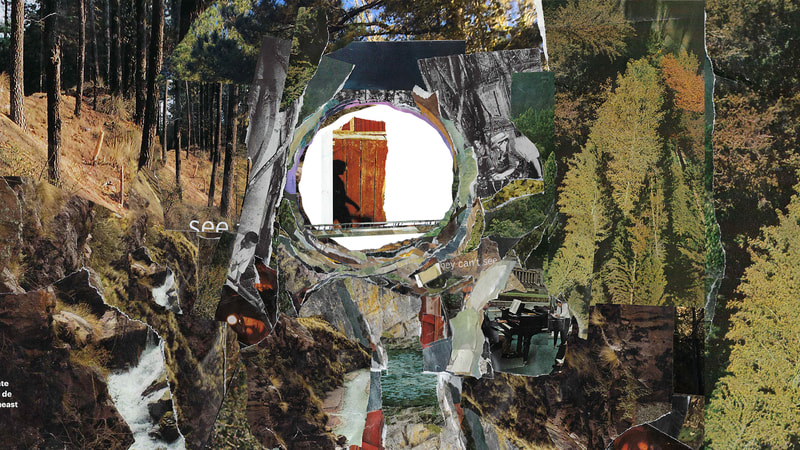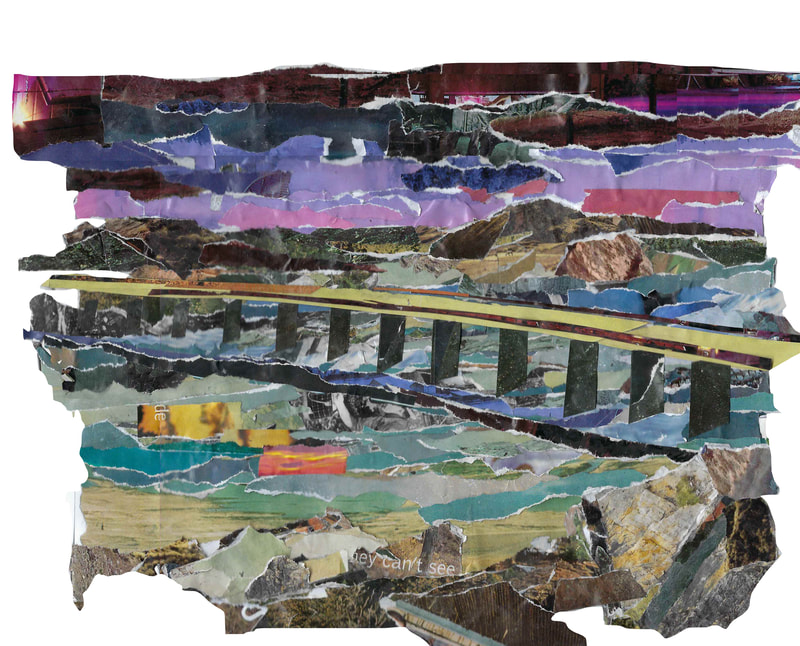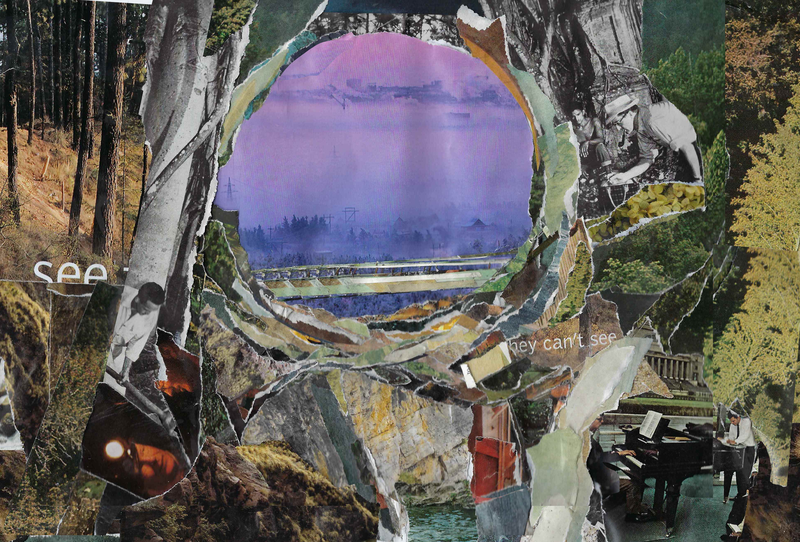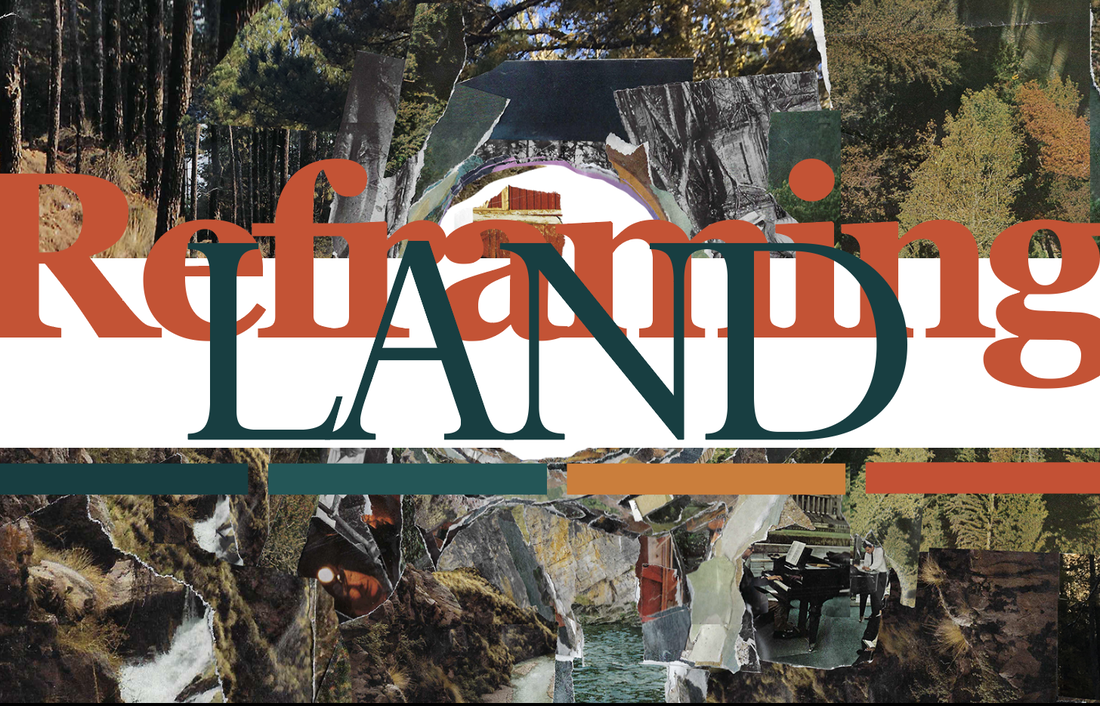Colbert Ferry - April 2021
Paper Collage stills for the film | November 2020 - March 2021
Colbert Ferry is an experimental animation that questions relationships to land through family experience and local industry. This work is grounded in research asserting that landscapes are instruments of power; constructions and reflections of the majority culture present within a place. The audience passes over Colbert Ferry, historically a Chickasaw ferry operation that aided settlers' journeys along the Natchez Trace in the early 1800s. This work intends to expose the implications of settler colonialism heralding extractive industry as an unsaid norm.
This work comes at a time in which land carries a new and greater meaning than ever before. Land as a place of refuge amidst the pandemic, climate change, and the opportunity to evaluate habits and the "norm" of how land is thought about, treated, and maintained. In a fusion of paper collage, animation, and film, this work is a metaphor for the state of landscapes in the US. Photos, and the memories they contain, are in constant transformation; ripping, layering, and creating new memory. Colbert Ferry is a shift from a global environmental focus, to a localized one, seeking to understand and shift the root attitudes towards land that allow for its unprecedented destruction.
This work comes at a time in which land carries a new and greater meaning than ever before. Land as a place of refuge amidst the pandemic, climate change, and the opportunity to evaluate habits and the "norm" of how land is thought about, treated, and maintained. In a fusion of paper collage, animation, and film, this work is a metaphor for the state of landscapes in the US. Photos, and the memories they contain, are in constant transformation; ripping, layering, and creating new memory. Colbert Ferry is a shift from a global environmental focus, to a localized one, seeking to understand and shift the root attitudes towards land that allow for its unprecedented destruction.
Further engagement
Click here to view a flip book: https://issuu.com/umart-design/docs/colbertferry-relationshiptolandbookletfinal
|
The following is a booklet for individuals to guide themselves through questions and exercises to unpack your own relationship to land. It includes the first 10 collages that were made as part of the film, and the memories that inform them.
| |||||||
